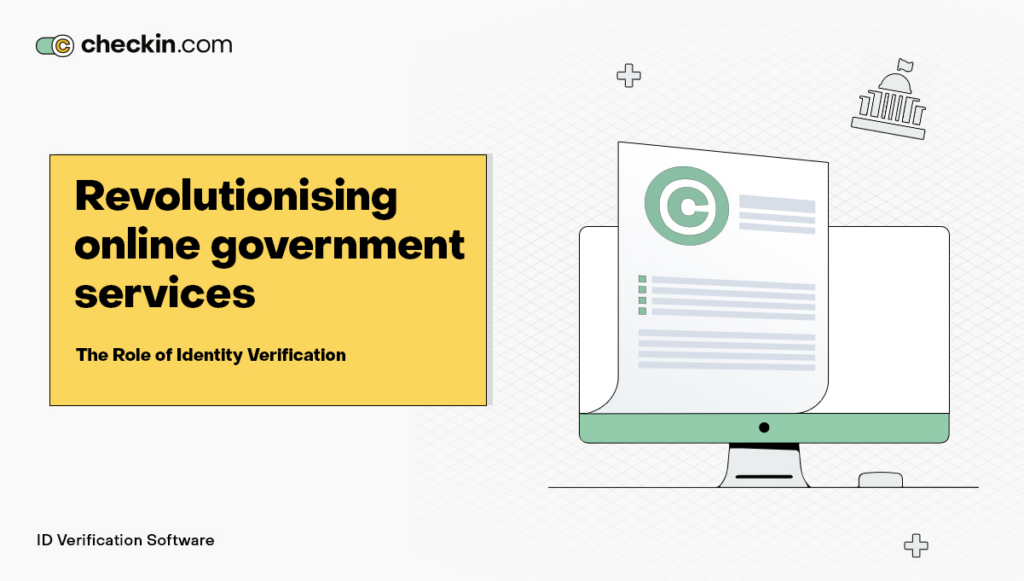Ever had the experience of standing in a seemingly endless queue at a government office? The anxiety, frustration, and the ticking clock – it’s an all too familiar picture. But what if we said there’s an escape from it all?
That’s right! Online government services are increasingly becoming the norm, bringing ease and efficiency.
However, the digital domain has its own hurdles, with id verification service standing tall among them. Yet, hope is far from lost. Innovative service providers are developing reliable solutions for identity verification, ensuring regulatory compliance, and safeguarding against fraud.
The Digital Shift: Government Services at Your Fingertips
Online government services are a revolutionary development in the realm of public service. They offer greater accessibility, save time, and promise a seamless user experience.
Consider this:
- No more queues, just a few clicks and taps to get things done.
- Services accessible 24/7 from anywhere.
- Transparent and efficient processing of requests.
But as Uncle Ben in Spider-Man rightly said, “With great power comes great responsibility.” The transition to online platforms calls for robust measures to ensure the integrity of these services, primarily through identity verification.
Unmasking the Identity Verification Challenge
Let’s imagine you are a city official. You’ve received a request for an essential service online. How do you confirm the requester is indeed the person they claim to be?
Answering this question is vital, as it forms the bedrock of trust in the system. It ensures the person accessing the service is genuine, eligible, and compliant with regulations. At the same time, it acts as a shield against potential fraud.
Service Providers Offering Innovative Solutions
At this juncture, service providers enter the scenario. With technological prowess and innovative thinking, they are offering effective solutions to ensure accurate identity verification.
These solutions incorporate advanced technologies such as AI, biometrics, and data analytics to establish identity beyond doubt. Their multi-faceted approach not only verifies identity but also ensures regulatory compliance and fraud prevention.
How does Identity Verification work?
If you’re wondering about the nuts and bolts of these solutions, here’s a simple breakdown.
- Facial recognition: The system compares a live image with a photo on an ID document.
- Document verification: Checks the authenticity of identity documents.
- Data checks: Cross-verifies information against multiple databases.
This tech-powered process is a bit like a digital doorman, who checks the credentials before letting anyone enter.
Beyond Verification: Regulatory Compliance and Fraud Prevention
Beyond ensuring identity verification, these systems ensure regulatory compliance, crucial to maintaining the integrity and credibility of government services. They also guard against fraud, a potential threat in online transactions.
Imagine it as a digital fortress, protecting the system from intruders while allowing legitimate users easy access.
The Future of Online Government Services: What Lies Ahead?
As we revel in the marvels of these advanced identity verification solutions, it’s also essential to look ahead at what’s in store for the future of online government services. The horizon of digital public services is vast and brimming with potential. As we continue to innovate and advance, this sector will likely witness more transformative changes.
One future possibility is the universal application of biometric technologies. Imagine a world where your iris or fingerprint is your key to access online government services, securely and efficiently. Not only could this make identity verification more straightforward, but it would also make it even more secure.
Integration with other technologies such as blockchain could also be on the cards.
Blockchain, renowned for its high-level security and transparency, could further strengthen the verification process, making it even more foolproof.
Additionally, as the capabilities of artificial intelligence and machine learning continue to expand, we can expect to see these technologies playing an even more significant role in the process. They could help improve the accuracy of verification, speed up the process, and even predict and prevent fraud before it occurs.
But it’s not all about technology. As we move forward, it will also be crucial to keep human factors in mind. Accessibility needs to be a priority, ensuring that online services are easy to use for everyone, regardless of their tech-savviness. User-centric design and empathetic service provision will be key.
There’s also the aspect of privacy and data protection, a topic of ever-increasing importance. As we gather more personal data in the digital sphere, ensuring its security will be paramount. The use of encryption and other data protection measures will likely become even more critical.
So, while we may be in the early stages of this digital revolution in government services, it’s clear that the journey ahead is exciting and full of possibilities. As citizens and service providers, we have an opportunity to shape this future, ensuring it’s one that benefits all.
Wrapping it Up
The shift to online government services is a welcome change, offering accessibility and efficiency. However, the integrity of these services hinges on robust identity verification measures. As we navigate this digital transformation, we can rest assured knowing that technological innovation, embodied by these identity verification solutions, is keeping pace.
These tools are not just enabling a more convenient user experience but also fortifying the system against fraud and ensuring regulatory compliance. So, the next time you access an online government service, remember there’s an army of innovative solutions working behind the scenes, making your digital experience safer and smoother.
[postbanner]
FAQ
Why is identity verification crucial for online government services?
It ensures the requester is who they claim to be, ensures compliance with regulations, and prevents potential fraud.
How do these verification systems work?
They utilise technologies like AI and biometrics to compare a live image with an ID photo, verify documents, and perform data checks.
Who is providing these solutions?
Several service providers are developing advanced solutions for identity verification.


